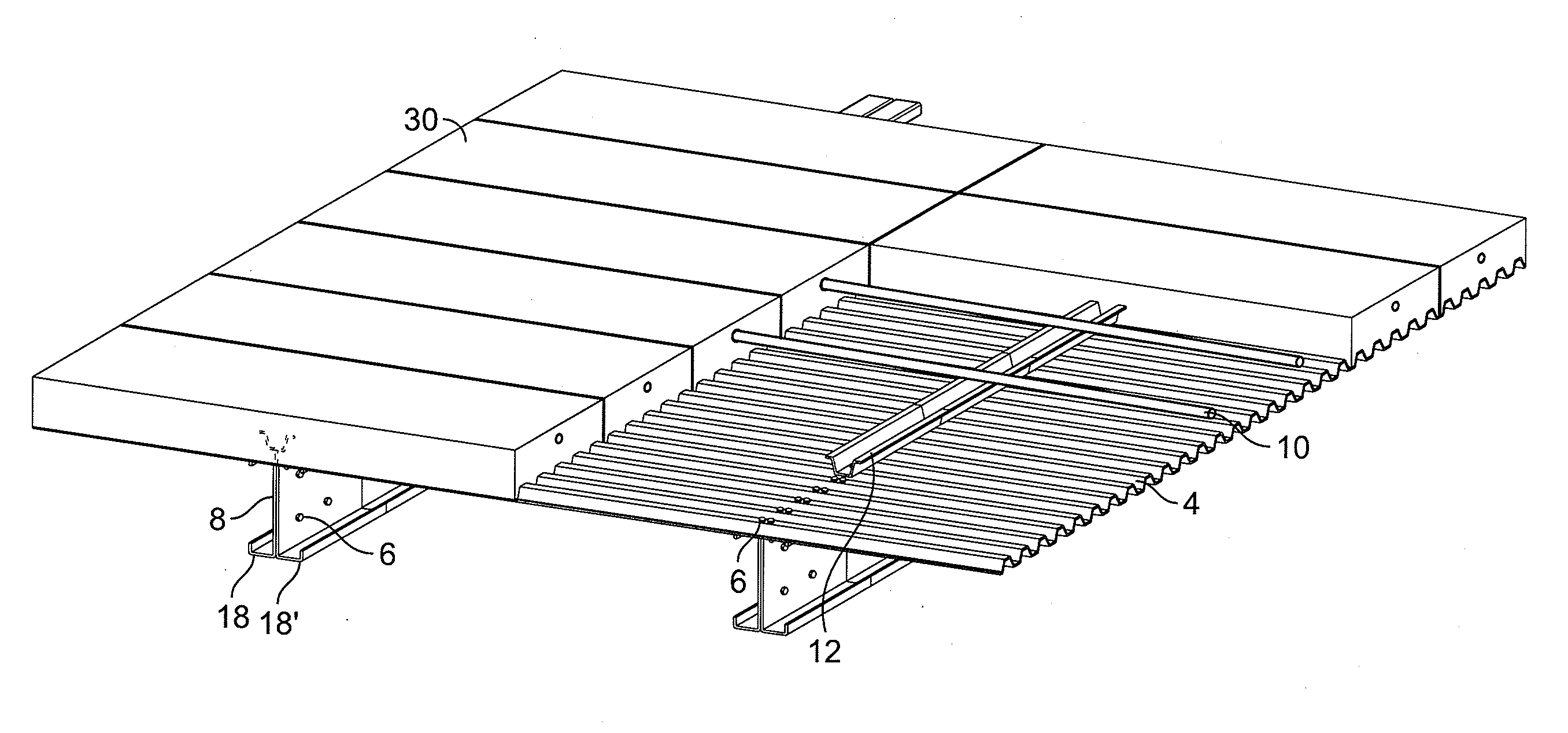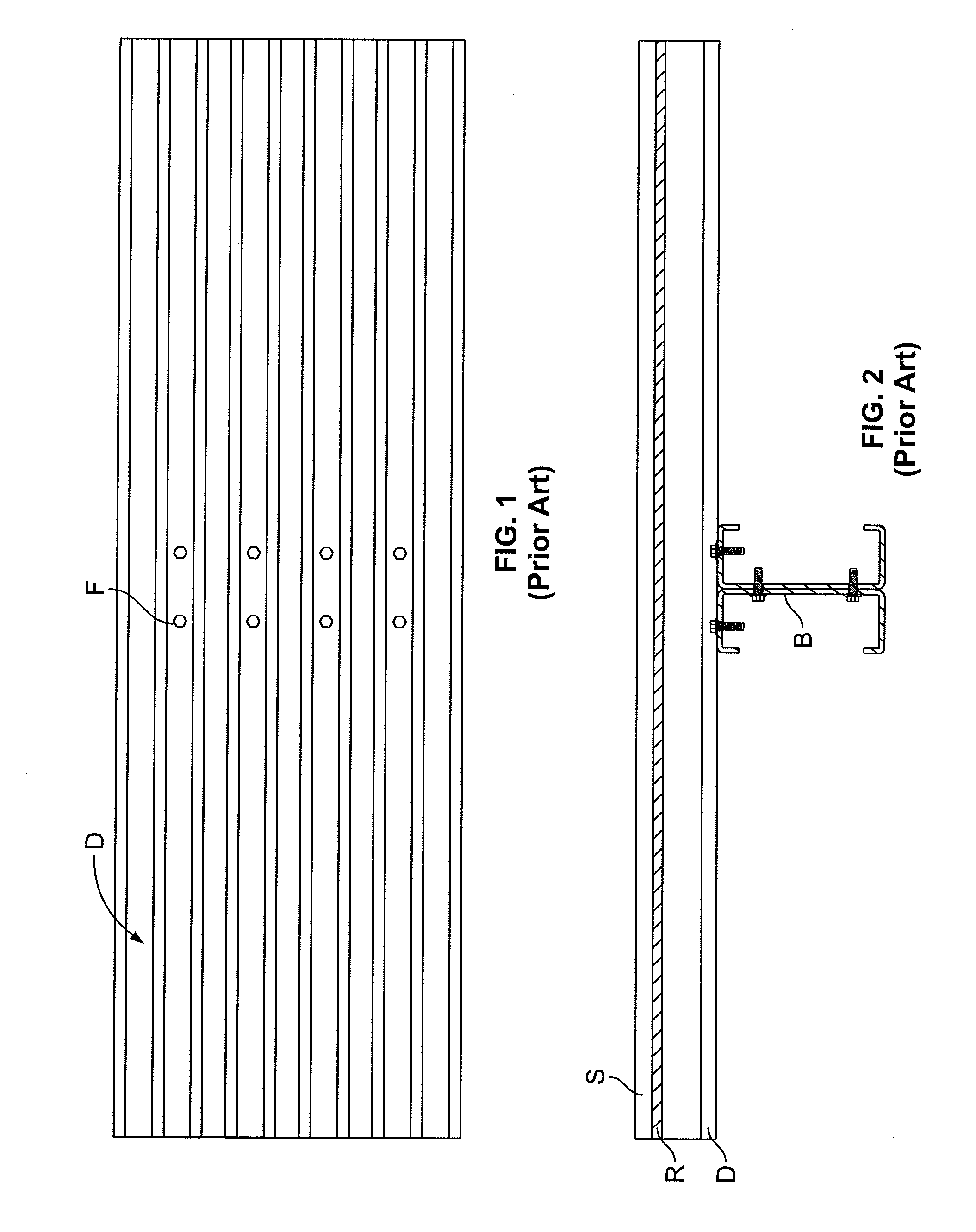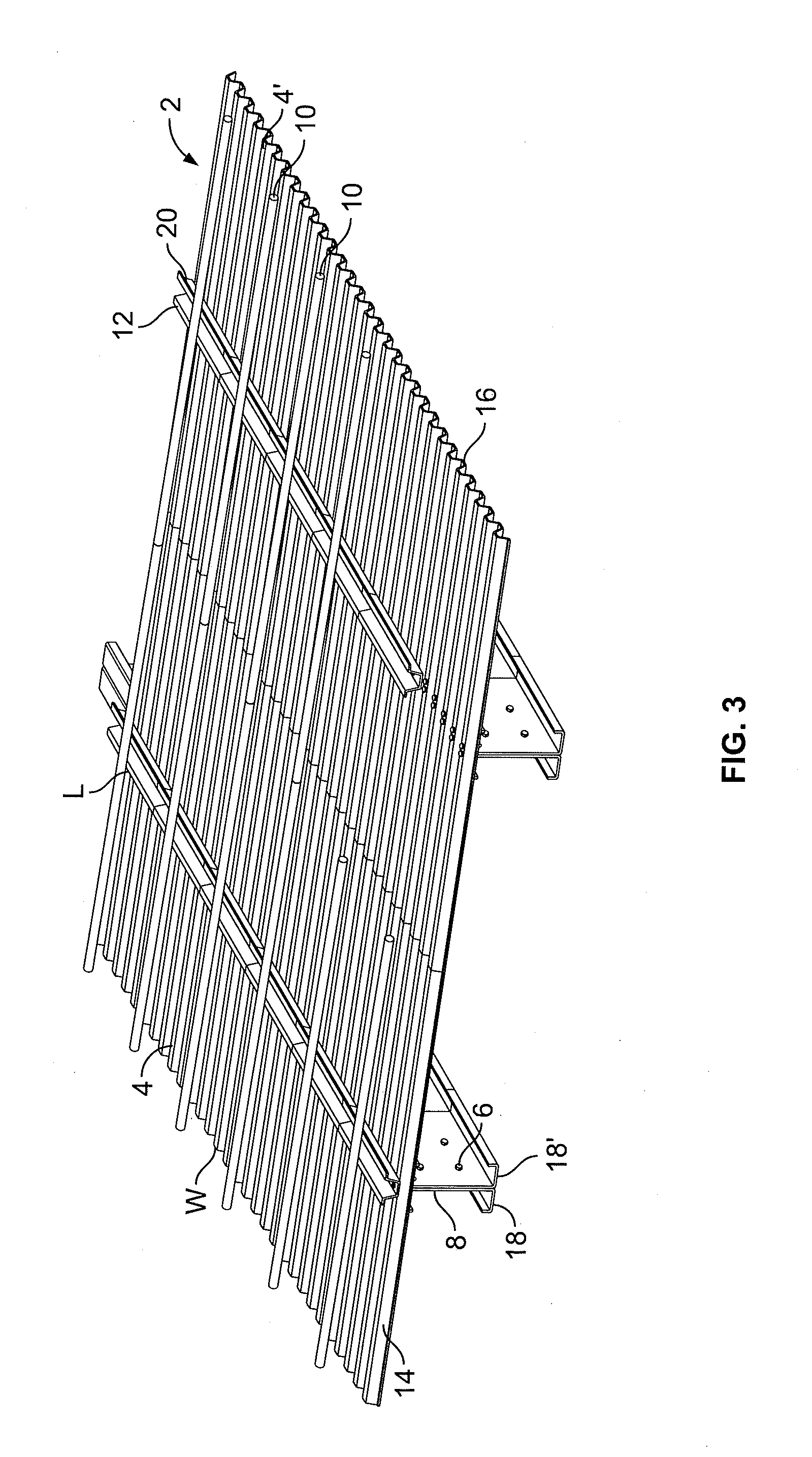System and Method of Use for Composite Floor
- Summary
- Abstract
- Description
- Claims
- Application Information
AI Technical Summary
Benefits of technology
Problems solved by technology
Method used
Image
Examples
Embodiment Construction
[0046]A composite floor system may include two or more components to allow for transfer of shear forces between the component parts. In some embodiments, multiple components may act as a unified object. Components used in the composite floor system may include lightweight materials, to decrease a total weight of the system while maintaining the strength and durability of the floor system.
[0047]FIG. 3 depicts an embodiment of composite floor system 2 prior to the addition of a slab. In this embodiment, composite floor system 2 includes decking material 4, 4′ fasteners 6, support members 8, reinforcing members 10, transfer members 12, and a slab (not shown).
[0048]Decking material 4 may include various materials including, but not limited to wood, plywood, fiberboard, metal, corrugated sheet metal, sheet metal (e.g. cold form steel), pre-cast concrete materials, gypsum, GYP-CRETE® underlayment, gypsum-metal composites, backer boards, rubber padding, fiberglass, polymer sheets, foam-cor...
PUM
 Login to View More
Login to View More Abstract
Description
Claims
Application Information
 Login to View More
Login to View More - R&D
- Intellectual Property
- Life Sciences
- Materials
- Tech Scout
- Unparalleled Data Quality
- Higher Quality Content
- 60% Fewer Hallucinations
Browse by: Latest US Patents, China's latest patents, Technical Efficacy Thesaurus, Application Domain, Technology Topic, Popular Technical Reports.
© 2025 PatSnap. All rights reserved.Legal|Privacy policy|Modern Slavery Act Transparency Statement|Sitemap|About US| Contact US: help@patsnap.com



